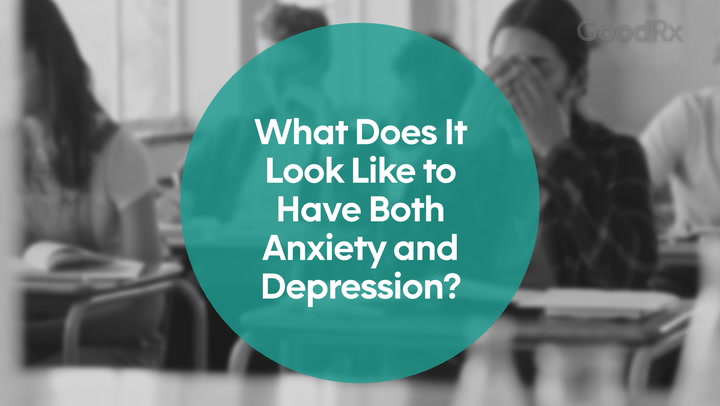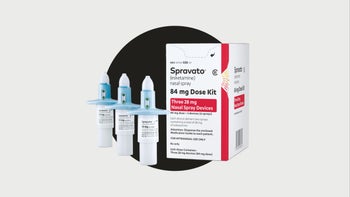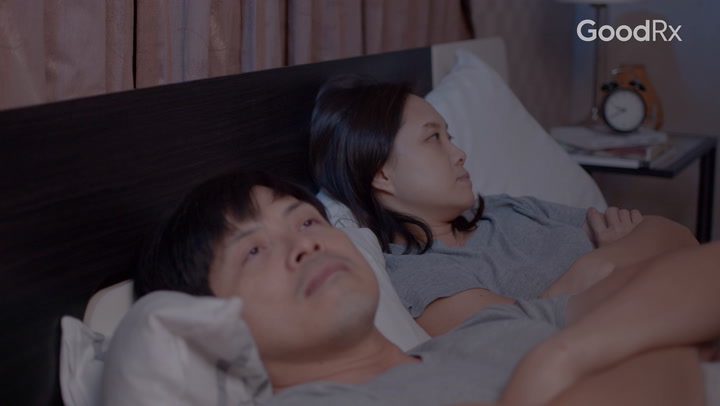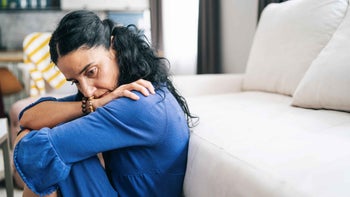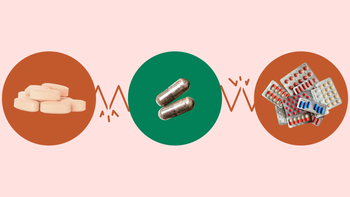
8 Ways Social Media Can Affect Your Mental Health — Both Good and Bad
Key takeaways:
Social media has been linked to mental health problems like depression, anxiety, negative body image, and eating disorders.
Social media can be positive for mental health too. It provides opportunities for social connection, encourages body positivity, and destigmatizes mental health treatment.
There are things you can do to have a healthy relationship with social media. This includes being mindful of the way you use it and setting limits for yourself.
Table of contents

Social media is a common pastime for people of all ages. It’s no surprise that healthcare professionals and scientists are interested in how it affects our mental health.
So far, there have been many studies on social media’s impact on stress, well-being, body image, and more. And the truth is: When it comes to mental health, social media seems to have both risks and benefits. Let’s take a closer look.
What are the effects of social media on mental health?
It’s hard to say. People can have very different experiences on social media. For some, social media can be a positive experience. But for others, social media has a more negative effect on mental health.
Search and compare options
It may all depend on:
What types of social media you use
How much time you spend on it
What types of content you view
What types of content you post
Here are eight ways that social media may potentially impact your mental health, both good and bad.
1. Depression and anxiety
Social media is linked to depression and anxiety, especially in youth and young adults.
Because social media is relatively new, researchers are still trying to understand the link. One theory is that social media is an artificial way to connect with other people. This means you don’t get the same benefits from interacting with people on social media as you would if you were talking to someone face-to-face.
Another theory is that social media can trigger FOMO (fear of missing out). Before social media, you might not be aware you weren’t invited to a friend’s party. But in today’s world, it’s easy to feel left out when pictures of the party are blasted all over social media.
Read more like this
Explore these related articles, suggested for readers like you.
Seeing pictures of other people’s lives can sometimes be hard too. It can make you feel like your life isn’t as interesting or exciting as other people’s. And when you feel excluded, isolated, or like you don’t fit in, you’re more vulnerable to depression and anxiety.
2. Addiction
Another drawback of social media is the risk of developing addiction.
Just like drugs and alcohol, social media sites like Facebook and Instagram activate the reward pathways in your brain. This triggers the release of dopamine, a feel-good chemical. The pleasurable experience of getting a like or follow on social media can cause you to keep coming back for more — and more. And for some people, this can become a problem.
Of course, not everyone who uses social media develops an addiction. Your risk might be higher if you:
Use social media a lot, or for long periods of time
Have high levels of impulsivity
Have a lot of anxiety
Have low self-esteem
Some people also turn to social media as a way of coping with stress, anxiety, or loneliness — just like some folks turn to alcohol or other substances.
3. Social connection
One of the most positive effects of social media? The opportunity for social connection. After all, humans are social creatures. We all need positive, supportive relationships to thrive. Being socially connected is good for your mental and physical health too.
Social media platforms offer an opportunity to connect with a wide variety of people. Social media can’t ever totally replace face-to-face connections. But it can make it easier to stay connected with friends and family who live far away. It can enrich your in-person relationships. And social media also makes it easier to find people who share your interests and experiences.
4. Body image
Unfortunately, social media can have a negative impact on body image for some people.
This is especially true if you use platforms with heavily edited images, like Instagram and Snapchat. These sites are notorious for influencers posting heavily filtered photos and videos. When people view these images, they tend to judge themselves — even when they know the images are edited.
Another common trend on social media is “fitspiration.” This is content where people post about their workouts or what they eat in a day. Even though this is intended to inspire viewers on their wellness journeys, studies show that it’s just as harmful as viewing content featuring “ideal” bodies.
5. Eating disorders
Given that social media is linked to negative body image, it’s not surprising that social media use and eating disorders also go hand in hand. People who spend longer amounts of time on social media are at greater risk for both anorexia and bulimia. These are eating disorders that involve body image (along with other symptoms).
Social media can also encourage people with eating disorders to connect with others — but not in a positive way. Eating disorder communities have sprung up on sites like Reddit and Tumblr. These groups “support” eating disorder behaviors by sharing tips and tricks. Members in these groups often experience peer pressure to take extreme approaches to weight loss, which can further fuel their eating disorders.
6. Body positivity
For some people, social media can actually promote body positivity. Body positivity means feeling good about your body, no matter your size or shape.
On social media, body positive content can help expose you to a wide range of body types. This means seeing people of different shapes, sizes, and skin tones. Viewing body positive content can encourage people to love and accept their bodies as they are.
Body positivity has also been linked to good health outcomes, including greater emotional well-being. It’s also linked to healthier eating habits, exercise, and self-care.
7. Cyberbullying
Cyberbullying is bullying that takes place online. It’s unfortunately very common across social media, especially on platforms like Facebook, Instagram, and TikTok. People of all ages and groups can become victims of cyberbullying.
Examples of cyberbullying include:
Posting false or negative content about a person
Making threats
Using social media to stalk a person
Sharing private information about a person
The goal of cyberbullying is to hurt or humiliate the victim. And being the victim of cyberbullying can have a profound impact on a person’s mental health.
Cyberbullying is linked to:
Emotional distress
Depression
Anxiety
Lower satisfaction in life
8. Destigmatizing mental health
As we mentioned above, social media has been linked to mental health problems like anxiety, depression, and eating disorders. But it’s also a great place for spreading mental health awareness. Social media can also help to reduce the stigma of mental health conditions.
Many people, including celebrities and influencers, have used social media to share their personal stories and recovery journeys. If you’re dealing with a mental health condition, hearing these stories can help you feel less alone. And they can make it feel more “normal” to reach out for help.
Which social media platforms are the worst for mental health?
There are lots of different social media platforms, each serving a different purpose. Currently, the most popular social media sites are:
YouTube
Facebook
Instagram
Pinterest
TikTok
LinkedIn
Social media is relatively new. So research has yet to fully explore how different platforms compare to one another in terms of their effects on mental health.
In 2017, the U.K.-based Royal Society for Public Health and Youth Health Movement published a report called #StatusOfMind. In the report, Instagram was ranked as the most harmful social media platform for young people’s mental health.
Many experts agree that image-based platforms like Instagram are the most negative in terms of body image because there’s a strong emphasis on appearance. According to #StatusOfMind, Instagram can also be a source of cyberbullying and FOMO.
But that doesn’t necessarily mean that you need to delete your account. It’s possible to have a healthy relationship with social media. Keep reading to learn more.
How can I have a healthier relationship with social media?
Taking a mindful approach — and setting limits — can help you have a healthier relationship with social media. This could include:
Cutting down on your daily screen time
Limiting yourself to just 1 or 2 social media platforms
Paying attention to your thoughts, feelings, and sensations as you use social media
Limiting the number of times you check your social media pages
Unfollowing or blocking accounts that make you feel bad about yourself
Taking a “digital detox" from time to time
Taking a break if you’re experiencing negative thoughts or emotions — and instead doing another activity that you enjoy
Maintaining a healthy relationship with social media takes work. At times, you may notice yourself using it more often or in ways that make you feel bad. If this happens, take note and commit to making changes.
The bottom line
Social media seems to have both positive and negative effects on your mental health. It’s linked to depression, anxiety, and eating disorders. At the same time, it’s a great way to connect with other people. Social media might have other benefits, too, such as body positivity and mental health awareness.
If you enjoy social media, think about becoming more mindful about your use. This might mean limiting the amount of time you spend on social media or cutting down on certain types of content. No matter what you choose, being aware of how social media affects you can help you maximize the positive mental health benefits — and minimize the negative ones.
For additional resources or to connect with mental health services in your area, call SAMHSA’s National Helpline at 1-800-662-4357. For immediate assistance, call the National Suicide Prevention Lifeline at 988, or text “HOME” to 741-741 to reach the Crisis Text Line.
Why trust our experts?



References
Centers for Disease Control and Prevention. (2024). Social connection.
de Valle, M. K., et al (2021). Social media, body image, and the question of causation: Meta-analyses of experimental and longitudinal evidence. Body Image.
Feldhege, J., et al. (2021). Detrimental effects of online pro-eating disorder communities on weight loss and desired weight: Longitudinal observational study. Journal of Medical Internet Research.
Giumetti, G. W., et al. (2022). Cyberbullying via social media and well-being. Current Opinion in Psychology.
Godoy, M. (2020). How body positivity can lead to better health. NPR.
Hancock, J., et al. (2022). Psychological well-being and social media use: A meta-analysis of associations between social media use and depression, anxiety, loneliness, eudaimonic, hedonic and social well-being. SSRN.
Harris, M. (2021). How social media is changing the way we think about mental illness. National Alliance on Mental Illness.
Miller, C. (2024). Does social media use cause depression? Child Mind Institute.
Murthy, V. H. (2023). Our epidemic of loneliness and isolation: The U.S. Surgeon General’s Advisory on the healing effects of social connection and community.
National Alliance on Mental Illness. (2019). How to have a healthy relationship with social media.
Padín, P. F., et al. (2021). Social media and eating disorder psychopathology: A systematic review. Cyberpsychology: Journal of Psychosocial Research on Cyberspace.
Pew Research Center. (2024). Social media fact sheet.
Primack, B. A., et al. (2017). Use of multiple social media platforms and symptoms of depression and anxiety: A nationally-representative study among U.S. young adults. Computers in Human Behavior.
Rodgers, R. F., et al. (2022). #Bopo: Enhancing body image through body positive social media- evidence to date and research directions. Body Image.
Royal Society for Public Health. (2017). Status of mind: Social media and young people’s mental health.
Stopbullying.gov. (2021). What is cyberbullying.
U.S. Department of Health and Human Services. (2023). Social media has both positive and negative impacts on children and adolescents. Social Media and Youth Mental Health: The U.S. Surgeon General’s Advisory.
Vandenbosch, L., et al. (2022). Social media and body image: Recent trends and future directions. Current Opinion in Psychology.
Vidal, C., et al. (2020). Social media use and depression in adolescents: A scoping review. International Review of Psychiatry.
Zhao, J., et al. (2022). Risk factors associated with social media addiction: An exploratory study. Frontiers in Psychology.
Zsila, A., et al. (2023). Pros & cons: Impacts of social media on mental health. BMC Psychology.
For additional resources or to connect with mental health services in your area, call SAMHSA’s National Helpline at 1-800-662-4357. For immediate assistance, call the National Suicide Prevention Lifeline at 988, or text HOME to 741-741 to reach the Crisis Text Line.










